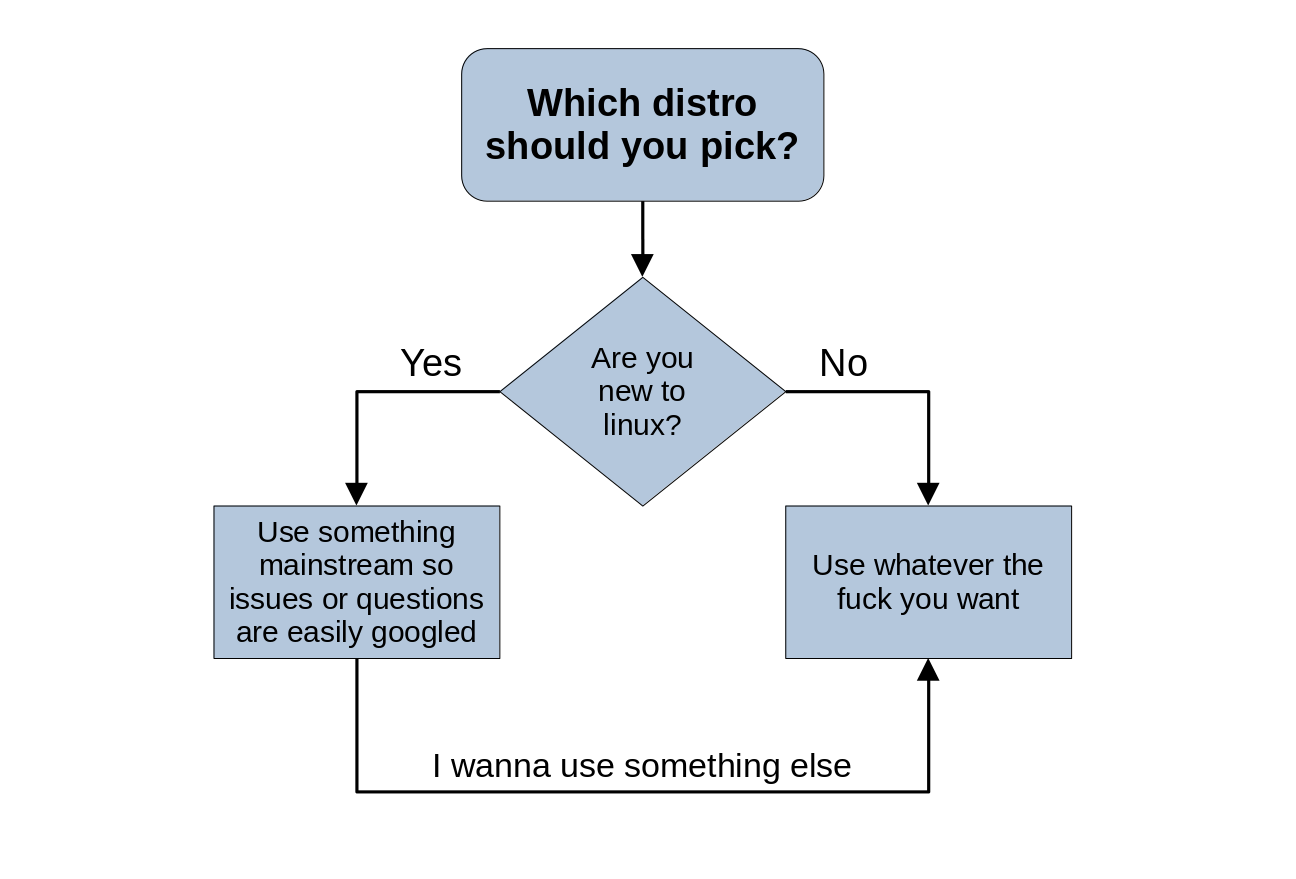this post was submitted on 21 Jul 2023
1048 points (98.6% liked)
linuxmemes
21263 readers
1871 users here now
Hint: :q!
Sister communities:
- LemmyMemes: Memes
- LemmyShitpost: Anything and everything goes.
- RISA: Star Trek memes and shitposts
Community rules (click to expand)
1. Follow the site-wide rules
- Instance-wide TOS: https://legal.lemmy.world/tos/
- Lemmy code of conduct: https://join-lemmy.org/docs/code_of_conduct.html
2. Be civil
- Understand the difference between a joke and an insult.
- Do not harrass or attack members of the community for any reason.
- Leave remarks of "peasantry" to the PCMR community. If you dislike an OS/service/application, attack the thing you dislike, not the individuals who use it. Some people may not have a choice.
- Bigotry will not be tolerated.
- These rules are somewhat loosened when the subject is a public figure. Still, do not attack their person or incite harrassment.
3. Post Linux-related content
- Including Unix and BSD.
- Non-Linux content is acceptable as long as it makes a reference to Linux. For example, the poorly made mockery of
sudoin Windows. - No porn. Even if you watch it on a Linux machine.
4. No recent reposts
- Everybody uses Arch btw, can't quit Vim, and wants to interject for a moment. You can stop now.
Please report posts and comments that break these rules!
founded 1 year ago
MODERATORS
you are viewing a single comment's thread
view the rest of the comments
view the rest of the comments

Oddly, Gentoo was where I started out when I got serious about using Linux. That was when I was in my 20’s and I wanted to get every last bit of performance out of my computer. Also, breaking stuff was fun and gave me a chance to figure new stuff out.
Now I just want stuff to work and be relatively up to date. So I use Debian testing.
I've found a good compromise between the two. I've disabled most of the desktop profile USE flags and I compile everything with -Ofast and LTO
Portage errors are uncommon, and build failures are easily fixed by disabling compilation flags from package.env. Build failures get less and less common as package.env grows (it's currently at about 20 lines)
As for the kernel, I just started with a distribution kernel, disabled all modules and only enabled the ones that I need (this can automatically be done with
make localmodconfig). These modules are built-in (solsmodusually returns nothing)I chose systemd because of the huge increase in boot speed
Compiling everything with LTO landed me in a situation where a bunch of packages fail to build because apparently having some LTO'd static libraries can cause issues.
I'm now going to start investigating where exactly the issue is. Trouble is, the package that was giving me errors, depended on a whole lot of static libraries, soooooo.... Good luck to me.
Being an ultra-madlad, I used to also -ffast-math everything that didn't fail, but because I didn't know about
package.envyet, I found it easier to just keep it off rather than turning it off and on again every time I needed to emerge something that failed because of it.Yeah, I think I've had that problem once or twice. I think I found the culprits by disabling all build flags for libraries that seemed related, rebuilding them, running
emerge @preserved-rebuildand then repeating the process to narrow it downdmesg and PFL help with diagnosing crashes due to libraries, but I don't think that would help here
If it helps, here's my package.env: